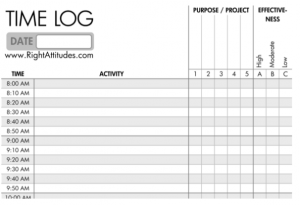Last Updated on 2022-09-18 by Stevenson
What determines academic success for college students? Sometimes ago intelligence was the primary factor that determines college success. But after researchers put an effort into studying learning and its dynamics, they realized that students are more effective when they implement appropriate academic self-management strategies to handle motivation, behavior, and learning.
So, are you a college student struggling with meeting deadlines, staying organized, and developing good time management skills? If you answered “yes” to any of these questions, you’re not alone!
You’re probably wondering who will help me do my homework or write me an essay. Don’t worry! Here are seven academic self-management tips to help you meet your deadlines and manage stress and emotions in diverse learning settings.
7 Tips for Academic Self-Management of College Students
Because time is a finite resource, balancing school is not a walk in the park. There are several activities to partake let alone doing the assignment. So, read on and practice these seven things to have an easy time in college.
1. College students should set goals appropriately

Goals Setting And Planning. Colorful Word Smart As Acronym Of Different Words Over White Background. Set And Achieve Your Goal, Motivational Banner. Panorama, Top View
Robert Herjavec says, “A goal without a timeline is just a dream.” Do you agree with him? I bet there’s some truth in this. When you set your goals, aim at setting achievable goals within a given time frame. If you keep practicing this, you’ll realize you’re achieving a lot and have spare time for other things.
And don’t forget, while setting your goals, identify distractors and find a strategy to deal with them. This will ensure you pay attention to your academic work for the best outcomes.
Setting goals is an integral part of your college life. But just setting goals won’t help you succeed in college — you need to create plans to reach these goals and evaluate your progress regularly.
Setting goals allows you to start self-management and make changes as you move along, rather than waiting for the end of the semester or next school year to check in on your progress. This is how you drive yourself toward success.
2. Plan Ahead

College students need to plan a head. Have the three words above in your schedule.
When you fail to plan yourself, you’re definitely planning to fail. Academic self-management is the process of planning and adapting to changes ahead of you. It’s a simple concept but one that many college students struggle with. Just because you had excellent grades in high school doesn’t mean you can coast through college.
So, how can you plan? Sit down and write a to-do list. With the list, make sure you prioritize your tasks, and let those assignments with a fast-approaching deadline be done first. If you’re using online academic help, be sure to place an order early enough so that you can have it back for counterchecking to ensure instructions are adhered to.
3. Use time management logs.

You want to record your time for academic self-management, but you don’t know how to. Don’t get disturbed so much; time management logs help you out. The logs keep a record of the time you spend on a particular assignment.
You can track it weekly, daily, monthly, or even yearly and establish how well you keep time and self-manage your academic work.
4. Checklist and Rubrics

As a college student, have a checklist of your events.
Checklists and rubrics are the most efficient standardized academic self-management tools. In your plan ahead to-do list, put a check box before each item to help you identify which tasks have been completed.
You can imagine the feeling of having all your boxes ticked. Doesn’t it feel great to realize that each ticked box is a sign of an achieved goal?
5. Create Routines
Remote Learning Daily Schedule Sample
| Time | Activity |
| 6 am | Wake up |
| 7am | Breakfast time |
| 8am | Morning walk/ exercising |
| 9am-11am | Study time |
| 11am- 12:00pm | Creative time |
| 12:00pm- 12:30pm | Lunch |
| 12:30pm- 1:30 pm | Chores time |
| 1:30pm -2:00pm | Quiet time |
| 2:00pm-5pm | Study time |
| 5pm-6pm | Break |
| 7pm | Dinner |
| 8pm | TV time |
| 9pm | Bedtime |
Routines are also practical academic self-management tools to help you achieve in school. Please find the most appropriate time to read and make it a routine to do so daily. Identify the quietest time if you’re at home, like early morning hours, and read with no hiccups. You’ll realize you’ve accomplished your tasks with ease.
6. Delegate your work
You are from class, and you have laundry to be done, clothes to be arranged, and a room to be cleaned, yet you still wondering who will do my essay.
You don’t have to die off with work if you have roommates or family to help you out. Ask them to help you with the house chores as you handle your assignment. When you delegate work, you find more time to engross in academic work. So, try this, and you’ll love the results.
7. Take time off
Working without rest will make you unproductive. Academic self-management involves identifying when you can no longer keep going and taking time off to regain momentum. It would be best to always separate long study hours and chunks of work with time off. Give your mind rest. It’s imperative.
Besides, most intellectuals recommend meditation as the perfect remedy. According to National Institute of Health (NIH) research, when you meditate, you allow the brain to get the ability to process with ease. In addition, it reduces conditions brought about by stress like irritable bowel syndrome, insomnia, back pain, etc.
Takeaway
These seven critical elements of academic self-management can help students manage their college work and avoid procrastination. If you happen to be looking for things you can do to be more effective at college, give these suggestions a try. You might find them very helpful in getting you back on track!


